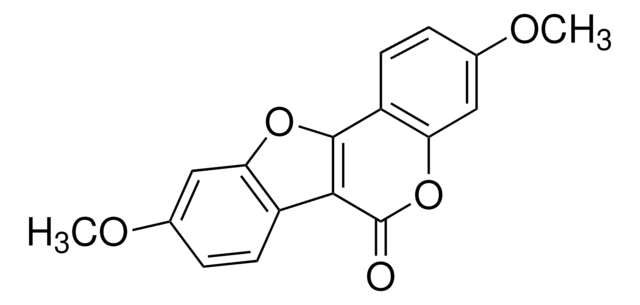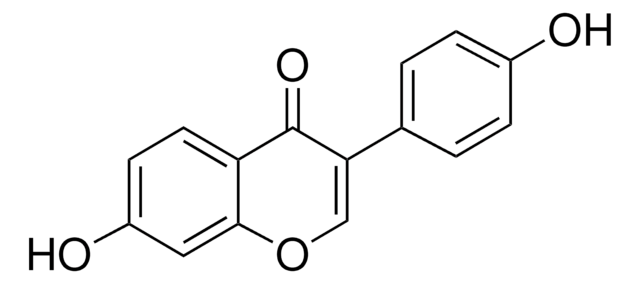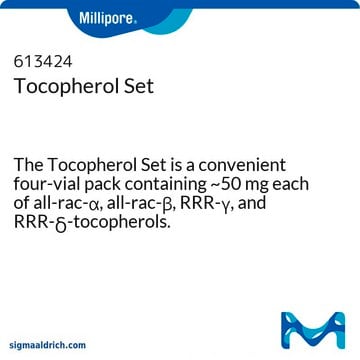27883
Coumestrol
BioReagent, suitable for fluorescence, ≥97.5% (HPLC)
Synonym(s):
7,12-Dihydroxycoumestan
About This Item
Recommended Products
product line
BioReagent
Assay
≥97.5% (HPLC)
form
powder
mp
≥350 °C (lit.)
solubility
DMSO: soluble
fluorescence
λex 377 nm; λem 437 nm in 0.1 M Tris pH 8.0
suitability
suitable for fluorescence
SMILES string
Oc1ccc-2c(OC(=O)c3c-2oc4cc(O)ccc34)c1
InChI
1S/C15H8O5/c16-7-1-3-9-11(5-7)19-14-10-4-2-8(17)6-12(10)20-15(18)13(9)14/h1-6,16-17H
InChI key
ZZIALNLLNHEQPJ-UHFFFAOYSA-N
Gene Information
human ... ESR1(2099) , ESR2(2100)
mouse ... Esr1(13982)
rat ... Ar(24208)
Looking for similar products? Visit Product Comparison Guide
Biochem/physiol Actions
Signal Word
Warning
Hazard Statements
Precautionary Statements
Hazard Classifications
Acute Tox. 4 Oral - Eye Irrit. 2 - Skin Irrit. 2 - STOT SE 3
Target Organs
Respiratory system
Storage Class Code
11 - Combustible Solids
WGK
WGK 3
Personal Protective Equipment
Certificates of Analysis (COA)
Search for Certificates of Analysis (COA) by entering the products Lot/Batch Number. Lot and Batch Numbers can be found on a product’s label following the words ‘Lot’ or ‘Batch’.
Already Own This Product?
Find documentation for the products that you have recently purchased in the Document Library.
Our team of scientists has experience in all areas of research including Life Science, Material Science, Chemical Synthesis, Chromatography, Analytical and many others.
Contact Technical Service








